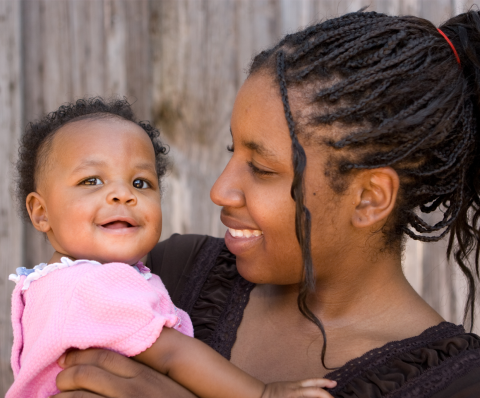Originally published in Ms. Magazine.
Not all infants live to celebrate their first birthday. Sadly, this is especially true for infants of teen mothers.
My career as an ob-gyn taught me what new data from the Centers for Disease Control show: Infants born to teens under age 19 are more likely to die in the first year of life, compared to those born to women over age 20.
And how young a teen is matters: Infants born to the youngest teens fare worse than those with older teen moms.
There are clinical reasons why infants born to teen mothers have higher death rates in their first year. But, our policies and health care system also fall woefully short when it comes to making sure pregnant and parenting teens get the services they and their children need.
When I think about teens whose pregnancies I managed and whose babies I delivered, I cannot help but think about the many ways our systems failed them.
I remember Jennifer (name changed) who became pregnant in college at age 19 because, as she said, no one ever told her sex can and should always be mutually consensual.
I remember Destiny who, at age 14, came to my office seven months pregnant for her first prenatal visit; fear of being stigmatized had prevented her from seeking both contraception and prenatal care.
I also remember trying desperately to help new teen mothers find a primary care doctor because their pediatrician would no longer see them citing their unique needs as a parent, while adult health providers felt unqualified to care for a teen. At almost every hospital where I have practiced, my ob-gyn colleagues said they were happy to send their pregnant teen patients to me since I enjoyed caring for them. Colleagues repeatedly shared that they lacked the training to provide the care they knew teen patients deserved.
These are structural, cultural and legislative problems—not age. It is our inability to reconcile the unrealistic expectation in the U.S. that teens not have sex or get pregnant with what we, as a society, should do to address the worrisome CDC statistics: Support all teens, including those who are sexually active, pregnant or parenting.
Identifying strategies that provide pregnant and parenting teens with resources that maximize their health and that of their infants is critical.
All teens, particularly those who are pregnant or parenting, deserve access to resources that promote positive sexual and reproductive health.
If we truly want to reduce deaths among infants born to teen mothers, we must:
-
Invest in comprehensive sex education that provides information and services that are medically accurate, complete, inclusive and age-appropriate;
-
Pass the Youth Access to Sexual Health Services Act, which supports access to sexual and reproductive health care for LGBTQ+ adolescents, immigrants, young BIPOC, youth in foster care, and teenagers in juvenile detention, among others;
-
Ensure all teens have access to the full range of sexual and reproductive health services, including contraception and abortion, so they can choose if and when to become parents;
-
Allow teens to consent to the care they want or need, without mandated parental involvement that may deter them from seeking care;
-
Invest in programs tailored for pregnant teens, parenting teens and their infants, like financing intergenerational health care models, CenteringPregnancy, and teen-tot programs;
-
Fully fund programs that help parenting teens access care for themselves and their children, like Medicaid and CHIP.
The high death rate among infants of teen mothers is just one outcome of how we consistently fail our teens. Instead of supporting them by teaching them to make a range of healthy sexual decisions, while respecting their autonomy, we punish them for having sex and getting pregnant. We make them navigate a health system that was never designed to address their needs. We put barriers in their path making it hard for them to exercise their right to choose if and when to parent.
It is clear that our policies are not doing enough to support pregnant and parenting teens. Helping all children reach their first birthday requires that our first step be to support all women, including teens, in their parenting journey.
